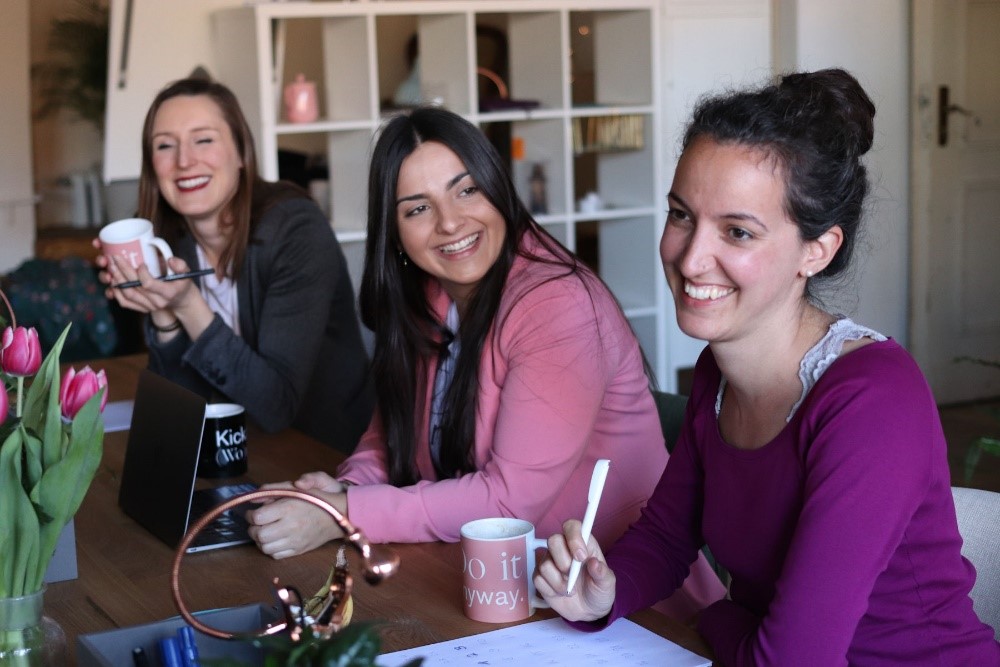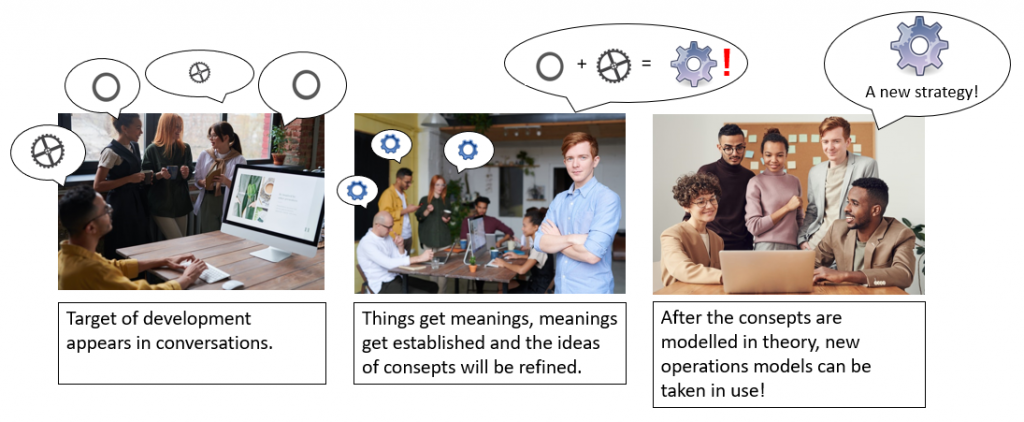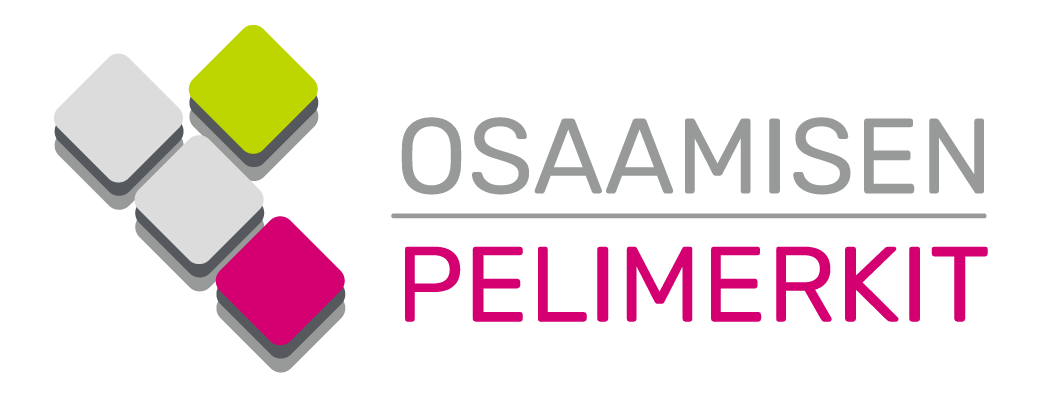Laurea’s Bachelor of Business Administration students took up the role of producer on game development teams in the Capital Region Game Project in the fall of 2019. More familiarly CRGP is being implemented as a joint course with Metropolia, Haaga-Helia, Laurea, Stadin AO and Amiedu. Blog writers Annamaija, Heikki, Henni and Lauri share their experiences during the fall as producers in the game development teams.
Author: Annamaija
As team members work remotely, many things can be ignored or unhandled unless you become aware of those and actively observe them. Time is often found to be limited, so unnecessary meetings held too often without significant goals are found to be a waste of time. Whichever means of communication teams choose to use, there is a simple solution to solve all the problems and challenges: talk, talk, talk!
Soft skills were mentioned in one of the previous CRGP 2019 blogs (link: Remote working = Freedom?). (1) Some of those are for example good self-discipline, ability to learn and motivating oneself, good interaction and communication skills and being self-guided. These skills are preconditions for successful remote working. I also stated, ”whether the team members are together or separately, remote or present – time should always be found to leading people.” So once again I jump in to fill the producer’s shoes. I’ll introduce some things that might be good to consider for those who make it possible to work remotely.
How’s it going?
Imagine that you are a part of a team of seven people, and you meet as a group face to face few hours in a week tops. You have agreed that working remotely is completely ok. Everyone live their lives with their own schedules; there’s work, hobbies and the other studies as well. How can I keep in touch with them all?
You should absolutely take time to team up as the project is being started. As you get known with the team members and be genuinely interested of them, it’s more easy to ask their news and feelings every now and then. It’s been studied that one can be content when one’s self-esteem is OK. Some of the factors that has an influence on one’s self-esteem are physical and emotional safety. The circumstances for work must be suitable for working and any verbal or behavioural threaths shouldn’t happen. It’s a great deal if one can feel being a part of the team and understands the important contribution one has done in the big picture. It also strengthens the sence of solidarity. When achieving goals one can feel experiences of success, which suits for a need to people to achieve things in live. (2,3)
Are the cornerstones of the team good enough?
A team leader must step back by every invidual and figure out many things. Is one’s know-how and motivation at the level that’s needed for doing the job? What are the things one might need help with? How will it made possible that each individual can flourish in the project? How can you make someone’s work noticed and respected? With only open and sincere communication a situation can be achieved where both parties can win and the best possible solution is found for both to go on with.
A producer must pull a few strings to be clear what’s going on
A game producer is a very challenging role for fresh students. Each game team and game lead have appeared to have unique needs to keep a producer busy with. The tasks have been anything between office work, clarifying software licenses, communication, writing memos, project management or planning marketing and monetization for the game.
Defining the goals
Definition of done
As I am a person who has zero experience of making games before this year, it’s impossible to guess how much it takes time in the reality to make the game or how long it takes to perform each task. We wrote down the first definition of done already before making the project plan. It sounded pretty much like this: ”A playable demo game with as few bugs as possible. Even quality in the entity.”
The project was divided into small tasks on the work cards in HacknPlan project management tool. The deadlines were inserted and responsibilities were shared on each card. Luckily in my team there were persons experienced enough to create quite easily and quickly the first schedule with sprints. We left the last sprint, 1,5 weeks almost empty to fix the bugs and polishing the game. Anyway, anything can happen that might take extra time to fix. It’s important to set the goals as realistic and achievable as possible. In case one has to take responsibility for something that’s been seen maybe at the most in theory, and starting the project needs learning all completely new things, it might kill the motivation straight away. Identifying the team member’s level of knowledge and offering or organizing help can be the only thing a producer can do in the moment.
How much does the responsibility weight for each one?
It helps a lot to recognize your team members strengths and weaknesses when preparing to many things. Tasks and responsibilities can be shared successfully, when you know how much each can have on their shoulders. The responsibility areas should be defined as clear as possible. If something exceptional happens, everyone knows right away who’s responsible for what and how the situation is going to be solved. Does everyone for example take care of everything that pertain to each one’s work? Who’s going to contact the help desk or other people who could possibly help?
But then again It’s been a great pleasure to notice there are many people who are willing to learn new outside of the subject matter. You can make use of it and share your knowledge when possible to the ones who are interested. The most challenging factor in this project is absolutely the three-month time limit. It propably can eat away some features of the game demo if the goal has been initially too ambitious.
You should never forget rewarding yourself and the team members!
The projects are by no means always full of challenges and thrown monkey wrenches in the work. There are also teams and moments when everything works like a clockwork. In the perfect flow it’s also good come to a stop and say thank yous and openly stand for excellent achievements. Not forgetting the rewarding. Donuts in the meetings or chocolate on Fridays are a wonderful cheer up. Tips for rewarding the remote workers are welcome!
Things the eyes cannot see
Challenges in leading a remote team
In the daily and weekly meetings everything might seem outwardly to be just fine. There are also several things that will be difficult or even possible to notice if all communication happens with digital devices. Surprises might be revealed if the following things won’t be actively observed:
- What kind of working principles there are in the team?
- How does the team leader act?
- Are the existing processes used as they are supposed to?
- Is the behaviour between each other in the team valued and respectful?
- How is the atmosphere and what kind of attitudes exist in the team?
- Are there unverified rumours spreading around?
Rapid increase in absences and slipping repeatedly in deadlines can be a sign of that maybe you should have a talk in private with the person. How the one is doing and is the work load too much?
I’ve noticed that people too often diminish or make the truth look better than it is, because they are afraid of how telling the truth might take effect.
Are the time lines for work and free time fading? Working remotely even at work doesn’t mean you have to work 8 hours non-stop. It’s also good to agree with the team what time is it still OK for example to sent instant messages and will the weekends be completely calmed down from work.
Remember to have breaks and eat well and you’ll feel much better! The unused hours for journeys to work and back can well be used for example recovering exercise or meeting friends. And if you are sick, it’s your right to suffer the flu etc in bed not working, like anyone else would.
It’s hard to sence the atmosphere in the team or if some peoples chemistries don’t agree. Unless there is open quarrel or tauting in the meetings. The conflicts might make an appearance as verbal tauting, neglecting tasks or setting intentionally work load on someone or even actual sabotaging.
Sometimes it can be very challenging to find out the misuse of intoxicants face to face. It’s even harder if a person works remotely. There’s been developed an early support model for workplaces to use if needed. But when the problems stay hidden, the possible ways of having information and help can remain unused.(4)
If someone’s behaviour suddenly changes from a effective performer to a passive, it propably would pay off if you figure out what has caused it. Use the facts in the conversation and intervene only to the repeated habits if needed. Resistance to change can arise from a simple reason like not understanding the big picture and why the functional good old ways of working must be changed.
Silent knowledge and weak signals
The weak signals are sensations that guide peoples actions. Those are things that arise from silent knowledge and are hard to put in words. Anyone who’s working somewhere, knows that there are unwritten rules about how some things should or shouldn’t be done. The practices that transfer by word of mouth. A couple of examples about silent knowledge are the ground rules at the work place and how much money and how often you should pay for coffee at work. But what are the weak signals? (2)

Weak signals are things that you might want to be aware of. Those are for example subjects and topics that can be talked about in the coffee breaks – how can things be done better? The need to develop and improving things often comes up from frustration when things are being done “the hardest way”. Then you really should be all ears when people are cursing their work. Listen between the lines. In a relaxed situation it’s much easier to articulate the thoughts though. The weak signals get meanings when talked about over and over again.

Picture sources from right to left, photos: 1) fauxels, pexels.com, 2) fauxels, pexel.com 3) fauxels, pexels.com Graphics Openicons, pixabay.com and Felipe, 95C, pixabay.com.
If the means of doing work is wanted to be developed together, you start with doing an overview of the present situation. The overview is meant for measuring and defining the real state of the to be developed subject. When everything has been defined for the developing process it’s important that everyone understands everything the same way. Then the common goals and practical actions are being decided.(2)
The goals are put into practice in cooperation with the team and learning happens by doing. The actions are made better and better in time, and constant conversation is kept going as the developing continues. The consept are modelled into guidelines, rules, patterns and diagrams. Then it’s possible to create a new operational strategy, that can be used in practice. When things and opinions are being reacted during the developing process and suggested improvements are being implemented quickly, it gives the impression that opinions do matter and those are being listened. That is also one thing that can upkeep the motivation for one’s work. (2)
It’s cristal clear that effortless way of working and working enviroment have an effect on productivity and even to a firm’s cost-effectiveness. Committed and proactive team member can be priceless! Let’s make socialization possible! Chit-chat is good for the people and the company!
Sources:
- CRGP 2019: REMOTE WORKING = FREEDOM? Published 5.12.2019
- Kesti, M. 2013. Hiljaiset signaalit esimiestyössä. Sastamala: Vammalan Kirjapaino Oy.
- Vilkman, U. Etäjohtaminen – Tulosta joustavalla työllä. 2016. Alma Talent Oy ja Ulla Vilkman.
- Työterveyslaitos – Työkyvyn varhainen tuki , aukeaa ttl.fi -sivulle
